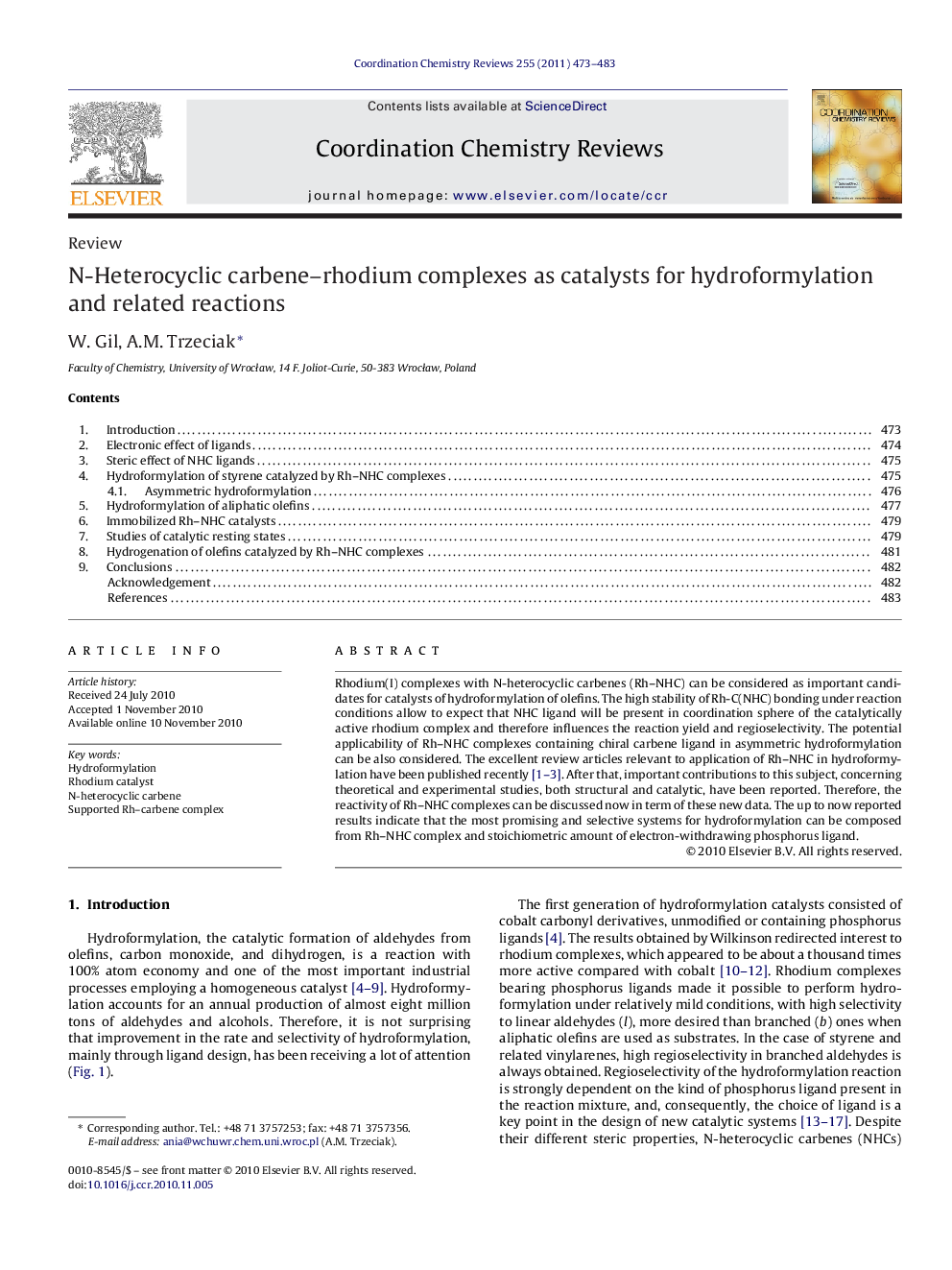| Article ID | Journal | Published Year | Pages | File Type |
|---|---|---|---|---|
| 1301123 | Coordination Chemistry Reviews | 2011 | 11 Pages |
Rhodium(I) complexes with N-heterocyclic carbenes (Rh–NHC) can be considered as important candidates for catalysts of hydroformylation of olefins. The high stability of Rh-C(NHC) bonding under reaction conditions allow to expect that NHC ligand will be present in coordination sphere of the catalytically active rhodium complex and therefore influences the reaction yield and regioselectivity. The potential applicability of Rh–NHC complexes containing chiral carbene ligand in asymmetric hydroformylation can be also considered. The excellent review articles relevant to application of Rh–NHC in hydroformylation have been published recently [1], [2] and [3]. After that, important contributions to this subject, concerning theoretical and experimental studies, both structural and catalytic, have been reported. Therefore, the reactivity of Rh–NHC complexes can be discussed now in term of these new data. The up to now reported results indicate that the most promising and selective systems for hydroformylation can be composed from Rh–NHC complex and stoichiometric amount of electron-withdrawing phosphorus ligand.
Research highlights▶ Catalytic activity of Rh–NHC complexes in hydroformylation and hydrogenation was discussed. ▶ Theoretical and experimental results were related to the electronic properties of NHC ligands. ▶ Formation and reactivity of hydrido and hydrido carbonyl Rh–NHC complexes were presented.
